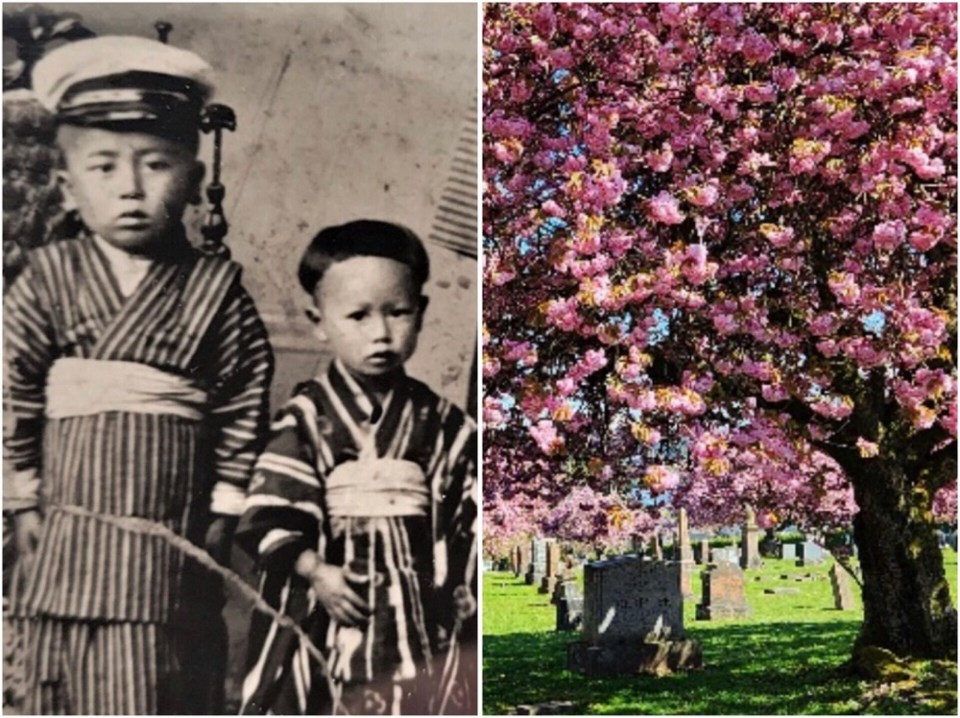My name is Shigeo, and I am sitting under a majestic Sakura tree in my hometown of Hiroshima.
I have come to visit my sister Toshika who has reluctantly agreed to meet with me, even though we have not seen each other for over 60 years.
As I look up at the branches and blossoms, I have vague memories of this tree in the backyard of our ancestral home.
I wonder on the miracle of how our house escaped the atomic bomb dropped on Aug. 6, 1945 and yet here it is — like a sentinel on the hillside overlooking this beautiful, rebuilt city.
I was four years old the last time I was here. My parents and I and my two-year-old sister had come to Japan to visit my grandparents, uncles and aunts.
We had a wonderful time visiting people, eating too much and my sister and I playing under this tree.
But when it finally came time to leave, only three of us got on the ship. Toshika was left behind to be raised by an older auntie who could not have children.
Back home in Canada, I was not allowed to talk about her. My parents went on to have six more children and I was told to never mention our missing sister.
However, I promised myself that I would go find her when I grew up.
Eventually, World War II broke out and I enlisted in the Canadian Army. I feared for the life of my sister and other family in Japan and used my military connections to ascertain that they were all alive and well.
It would not be until 1970 before I finally made it back to Japan for the World Expo.
One of the first things I did was go to the family homestead in Hiroshima and there was my sister.
She was a little old lady and was ashamed and angry that I came to find her after all these years.
She never forgave my parents for leaving her behind where she lived as an only child in poverty.
She grew up and married but then the bombing happened, and she had to suffer through the aftermaths of that. She is ashamed because she always felt she must have done something very wrong to be left behind.
I tried to tell her that our parents tried to get her back but World War I broke out and then World War II happened. In addition, they believed she was young enough not to remember her other family.
As she grew up, she became angrier and angrier.
She told me she found letters from our mother where she talked of her other seven children and their lives and the good living in Canada. In the letters, she rarely asked how Toshika was doing.
I spent four days with my sister as we journeyed through her memories and our stories. But as I was leaving, she asked me to forget about her. She asked me to not let any other family members come look for her.
My heart was filled with sadness as I delivered this message to my siblings and grandchildren.
As the years passed, I did write to her but never got a response.
Now, I am an old man and visit the Sakura trees in the spring, in the graveyard near my home. When they are in full bloom, I look for the biggest one and sit beneath it. I think about my sister and all that has transpired and what could have been.
These beautiful trees fill me with so many reminders and memories of my family and homeland.
And I feel homesick and sad and let the falling blossoms weep for me.
- Nancy Kato, New Westminster
✍️ Do you have a short story you'd like to share? Submit your fiction or non-fiction piece, up to 2,500 words, to [email protected].
Be sure to include:
- your name
- your city
- the story title
- a photo to complement the story
- your public contact and social media information (optional)



